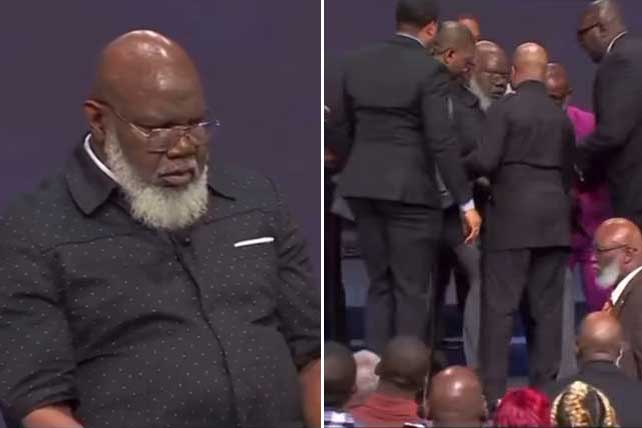EPISODE 495-FINAL-Jody Dean.mp3: this mp3 audio file was automatically transcribed by Sonix with the best speech-to-text algorithms. This transcript may contain errors.
Ed Stetzer:
The Setzer Church’s podcast is part of the Church Leaders Podcast Network, which is dedicated to resourcing church leaders in order to help them face the complexities of ministry. Today, the Church Leaders Podcast Network supports pastors and ministry leaders by challenging assumptions, by providing insights and offering practical advice and solutions and steps that will help church leaders navigate the variety of cultures and contexts that we’re serving in. Learn more at Church leaders.com/podcast network.
Voice Over:
Welcome to the Stetzer Church Leaders podcast, conversations with today’s top ministry leaders to help you lead better every day. And now here are your hosts, Ed Stetzer and Daniel Yang.
Daniel Yang:
Welcome to the Setzer Church Leaders Podcast, where we’re helping Christian leaders navigate and lead through the cultural issues of today. My name is Daniel Yang, national director of Churches of Welcome at World Relief. And today we’re talking with Doctor Jodi Dean. Jodi is a professor of Christian education at New Orleans Baptist Theological Seminary. His research has focused on ministry leadership in the areas of church administration, discipleship, and risk management. Jody’s new book is Managing the Ministry A Practical Guide to Church Administration. If you enjoy our interviews, make sure you like and follow us on Apple Podcasts. Now let’s go to Ed Stetzer, editor in chief of Outreach Magazine and the dean of the Talbot School of Theology.
Ed Stetzer:
All right, Jody, we are so pleased to have this conversation. And I am a church administration nerd. I’ve ended up in kind of a different world, being the the dean at a seminary and a teaching pastor. But I remember years ago I took a course with Frank Schmidt, and he had he had these jackets from the 70s, these blazers that he’d wear. And he started talking about church administration and procedures and policies and how those help people and how. And I just it was like a light switch came on in my head. And I love, you know, I talk about my spiritual gifts, being teaching administration I love administration. So tell me, I mean for you, when did this become a passion for you that you would lead you to write Managing the Ministry. A Practical Guide to Church Administration.
Jody Dean:
I took my first church at 18, and I had never heard of Robert’s Rules of Order. I’d not heard about planning an event and organizing my church. Growing up did not have conflict, and so I had not seen any of these outlier urban legend kind of stories of church. And so I get to my first church and I go to a business meeting. I did not know something needed to go through church council. And there’s the senior adult gentleman who kindly rebukes me very vocally in a business meeting. And I said, I’m sorry, sir, I’d be happy to read about how this church works. And in your documentation he said, son, you just need to come by the house and have a cup of coffee. It’s all right here. And so that was my brain.
Ed Stetzer:
Pointing to his brain for those listening.
Jody Dean:
Just all in his head. And his name was Bob. And I learned the true Bob of Robert’s Rules of Order. And so this guy took me to school of learning about how churches can work and how each church is different. And so I began on this journey of, I really need to know how a church works with people and property and and programming and finances. And it was back not to share my age too much, but it was back when they handed me a checking account just for youth ministry and a checking account for children’s ministry. And I hadn’t had authority to sign a check, and I had just gotten a checking account myself. And so it was this crazy aspect of, is this how it should be? So it put me on this path of of self-discovery, of what is church administration? How should it be done? What are some best practices? I got introduced to Charles Tidwell and Robert Welch, some guys that had published in the space. So I bought Effective Ministry and I and it was before the first edition of Church Administration with Welch. But he was like the church admin guru of the day. And so I began this self-study journey. But I’ve always loved the details, the executive pastor role, maybe that second chair look and and so I just became intrigued with it, have loved it. And the Lord has continued to open doors to get to be in this space.
Ed Stetzer:
Yeah, I love it, but but here’s what you probably need to know is that that we’re kind of nerds when it comes to this topic is that that’s not most people don’t experience the beauty and joy of, of of of this kind of approach. They for them it can be a drudgery or more. But for me, like I have all those books, I, I learned about what that meant and how to function in that role. But then when I became, you know, I was a pastor for a while, when I became whatever, I became like a professor. And then, you know, someone teaching about these things, I found that for a lot of pastors, like this is the last thing that brings them joy. They want to. And it’s different, you know, depends upon their wiring. They want to tell people about Jesus or they want to counsel people. But what I kept seeing is that this lack of administrative savvy is like a lid that they kept coming up against you. Oh, yeah. Because, you know, you know, we talk about megachurch. I mean, the megachurch pastor is probably not doing a lot of that.
Ed Stetzer:
You talk about a small church. There’s maybe sometimes a church plant. You don’t really. It’s not. But you get to the mid-sized. I’ll give you a quick example. This Sunday, I do a thing when I’m in a town like, and I’m not by my home church, and I’ll say, hey, if you need a guest preacher and your church is under 100 attendance, I’ll come preach for you this weekend. And so I got a small church this weekend. Wonderful church, megachurch pastor from New York who’s semi-retired and comes to pastor of this church. And it’s completely board driven and board led and you just have to do all this stuff again. So I preach, and he had to go to the board meeting after church, and everyone was the head of the committee is on a board, and I think people don’t realize how common these structures are, and secondarily, how often unprepared pastors are to navigate some of those things. So why, I mean, what’s the biblical basis? Let’s start there for giving attention to some of these administrative aspects of ministry.
Jody Dean:
Sure. I think about the Jerusalem Council in acts, you know, when there was conflict and they called a meeting, and then there was this report that they drafted because of that meeting, and then they dispersed it to other congregations. So they would also understand. And that just was reading the book of acts is just where I find they were really grasping with how do we deal with a church that starts small and grows and then multiplies even into multiple congregations? And they didn’t have all the terminology that we have today. It was a new movement, a new growth. They were first called Christians. And so in acts we see that. And so at Jerusalem Council just looks kind of like the first church conference, church business meeting of some degree where some leaders had to get together, try to solve a problem and then figure out how to distribute that so everyone would understand. And so that is where I find a basis of just learning to deal with people and processes. Well, that’s where I would find my baseline for that aspect of church administration. But when you get into the letters Paul wrote to the Corinthians, as well as the letter to the church in Ephesus, administration is actually one of the gifts that’s listed, and that’s a gift I’ve discovered I have and as well as teaching. And so, um, the other biblical basis is that some people have the gift of administration to help the body manage these things. And so that is where I enjoy helping people manage people, property, finances and all these procedural things and programming aspects. So you can just be an effective organization that reaches people and makes disciples.
Ed Stetzer:
Yeah. So I think that is probably when we were younger. I think you’re younger than me. But when we were younger, there were all kinds of books on that. And, you know, and maybe before we were younger, you know, like before we were around, there weren’t. And then it came into vogue for a while. Then the church growth movement kind of got Ahold of it, and in some ways, in some ways became methodological mania. And everything became formulas and numbers and stuff like that. And then came the backlash to it, partly because we were kind of in some ways deconstructing the the kind of congregational model that was, you know, monthly business meetings. I know very few churches that do monthly business need meetings anymore. And so then people kind of moved away from it, but as they kind of deconstructed the American congregational model. I’m not talking about congregational as a theological concept, but as as a governance concept. It seemed that there wasn’t anyone else to take up and say, well, but here are some things you need to know about administration. That’s why I’m hoping Managing the Ministry A Practical Guide to Church Administration catches on. So. But you said something right at the end there. You said, how does somebody ask, how does administration support and empower the personal side of ministry? Because it’s not an end to itself, which kind of sometimes that American Democratic congregational model that was imposed on a lot of churches felt like it was it was there for itself. But instead, you’re trying to help people empower the personal side. What does that look like?
Jody Dean:
Well, for me, I think of some of the challenges that you deal with time management. I don’t know a leader that does not deal with figuring out how to manage everything within their week. And so you have some time management concerns that become personal administration, uh, in a place where you have multiple generations in one congregation, you have to figure out generational differences as you walk through administration. For example, an older generation may value the property, the building, the look of that building more than a younger generation. And so those aspects of understanding how different generations value certain things really comes in to helping us in administration, to where if you can help the pastor understand that, or you can help key board members or key decision makers in your congregation about those things and understand that they’ve put their stock in the building, not the people. And so our program and instead of a process of discipleship, then you get to understand there might be some challenges there that are just natural generational Challenges that you would see in a civic organization that you might see in their workplace. And and so those are aspects that I think are just kind of common to all of us in leadership as we help any congregation move forward. Another topic that’s just emerged in the, uh, first few decades of the 21st century has been risk management. We understand the safety of our people, uh, in a more meaningful way. And so linking that aspect of creating a safe environment to the shepherd overseer, uh, learning to take care of the flock and providing a safe environment, a secure environment so people feel safe within the property, they feel safe around one another, and they learn to find that even in the society, we may be existing as a church. The church can still be a place that is safe and secure. So risk management factors is one that early on in my ministry I don’t know about you had. But early on in my ministry I just I didn’t even think about risk management. I didn’t.
Ed Stetzer:
Either. Not not not in the beginning. I mean, later on, when everything became so litigious, I didn’t.
Jody Dean:
Think about, hey, kids, make sure you have a seat belt or hey, is there, gun violence is there. And so there were just aspects that did not even surface for me in administration. They were just assumed that we’re not going to deal with those or just not even on the radar. And so that’s another aspect that has risen to the forefront for us in, uh, in the society in which we’re navigating of we need to make sure we go to extra lengths and extra efforts to deal with risk management factors.
Ed Stetzer:
Yeah. No, I like that. Um, what do you say to people? And right now I want to get into some of the best practices. I want to talk about processes and systems and all that sort of stuff. But before we do, what do you say to people who say, man, I just want to love people, preach the Bible and, you know, go from there. What do you what do you say to them?
Jody Dean:
I do too. Yeah. I mean, I would love to not have to deal with some of the things we deal with. It would it would be like the car dealer that says, I only want to deal with sales. I don’t want to deal with warranty work. You know, it’d be like the banker that says, I only want to deal with deposits. I don’t want to deal with employee issues. It would be the same for any small business owner. It would be like the principle that says, I only want to deal with loving kids. I don’t want to deal with teacher complaints or parent complaints, and we just live in a place to where in leadership, you have to deal with the full umbrella of the organization. You can’t just pick and choose what you want to do. Leadership. You have to oversee all of it. And so that’s where I just remind people that a lot of people in life deal with things they don’t want to on a weekly basis. Um, and.
Ed Stetzer:
Sometimes you got to eat your spinach.
Jody Dean:
That’s right. And so if you talk to an educator, if you talk to a politician, if you talk to a business owner, they’re going to tell you every week has its challenges. And every week they don’t get to just the politician just just not get to do ribbon cuttings of new businesses and, and and new opportunities. And the educator just doesn’t deal with everybody making straight A’s. And so you have this diversification of yes, I would love to do the things I just love to do. But the Lord called me to serve his people, uh, through his church. So that means I deal with the bad side of dealing with sheep, right? And that is sometimes not the it’s called we sometimes call it the smelly side of pastoral care. And and so yes, I would love to just deal with the nice pretty wool, but sometimes I got to deal with the other factors I don’t even like.
Ed Stetzer:
Makes sense when it comes to church administration, what are some major areas that need to be stewarded? Other categories that we should think these are the prime things we need to be thinking about.
Jody Dean:
Uh, some of those are peas. For me, that’s people. Uh, there’s a there’s an aspect of figuring out how everybody has a place to serve in ministry as an administrative aspect of just sorting the layers of the church and and seeing what your giftedness is, and then matching that to a ministry. So I believe one aspect of administration is with the people finding a place for everyone to serve at a basic level. I think another best practice is with property and that is developing a maintenance plan. I drive by a lot of buildings where the columns are peeling or the sign one letter is not lit up. I usually don’t go by a Hobby Lobby that doesn’t have all the letters lit up. I usually don’t go by Walmart that doesn’t have all the letters lit up, but to drive by a church at night and all the letters are not lit up. That is one aspect of property that just goes hmm, is is that place seen? Its better days. And so for the person driving by and maintaining the property well does have a an impact to how people view the property. And so there’s that property aspect. The non-p in that category would be finances.
Jody Dean:
Uh, there’s got to be some best practices of receiving money and accounting for that and then spending it in an accurate, systematic process. Uh, no one wants to go to jail for mishandling somebody else’s money. And so you have that fiscal Process that is rises to the level. Do people ask more questions in the society? They question things a little more that in programming we may not have programs that are labeled the same way as when we were kids. Every church has their own logos and their own systems, their own processes, but everybody has some programming that they have to do. Now, we may think of that as a children’s ministry or a youth ministry, but in administration, I’m thinking everything that needs to be on a calendar, everything that says we’re putting money behind this. We’re putting people behind this, or we’re reserving our property for this. Well, that’s got to be programmed. Sometimes something you program is going to take all three of those, and sometimes it’s only maybe going to take one of those. And so that is an aspect that I think is of utmost importance for us because that sometimes can eat our lunch. You. You can be called after service and everybody’s giving you a list.
Jody Dean:
I remember I used to in the early days of ministry, I would keep a pen and a notebook and, you know, I was having to write all these things down. I’m so thankful for apps on my phone like Todoist. That helps me with that. Now to where I can just, um, on an app, say, oh, sister so-and-so needs help with women’s ministry or, or, uh, Jenny needs help with children’s ministry, or Scott needs help with youth ministry, and I can just keep up with those things. Or, uh, Ethel said her classroom was too cold during her Bible study, you know, and or those different aspects. Or someone lets you know something that they donated money for needs attention. And so, you know, I would just keep all those administrative notes so I would remember them on another day. But we all need some kind of process to where we remember those things. We live in a digital age, but just getting attached. You may not remember to actually act on it, even though you may receive the info. So having a process of how all those, uh, to do things get accomplished is also important.
Ed Stetzer:
Yeah. Do me. Do me a favor and tell me. You mentioned an app that you use. Yeah. Tell me some other tools that you use technology wise that you would think would be helpful for pastors to be administratively effective.
Jody Dean:
I love planning center. Uh, to help coordinate and put things together. There’s, uh, an app, the or a church software that also has an app called Church Community Builder that I found to be very helpful. Uh, there are different systems. I’m not a promoter of one company over the there.
Ed Stetzer:
Just because there are several like church community builder. But but they’re all have helpful tools in them. But keep keep going. You mentioned Todoist. You do that. Um. What else?
Jody Dean:
I use church. Form is a website and they have templates to where I don’t have to dream everything up from scratch, and I can download those templates and make them my own. Brotherhood mutual has a huge library of resources that help me with things to where, like an incident report for the risk management aspect, or needing to deal with a medical release form or a file. Um, I’m even encouraging people to keep files for their elderly, since families don’t always live in the same city. So I had a lady in her 90s, uh, have a pacemaker go out during service. And who do you contact? Uh, and so, uh, for her. And so just, um, keeping up with information for people. I’ve just found it very helpful, uh, to have that information for people. Another app that is great for me, uh, to keep up with everything is I use the Google suite so I can I can have my calendar and I can link that calendar with my email. And I can do meeting invites, I can calendar things, I can put tasks and even an email those to other people as they happen in real time. So I found the Google suite, where I have access to my Google Drive all the way from my phone to my iPad.
Ed Stetzer:
And you’re using it in an integrated way. I mean, I friends don’t generally let friends use Google Suite, but if you’re going to use Google Suite to do it, Integrated way is really a great team experience as well. I should add, I use Evernote to throw that in there as well. By the way, you mentioned Brotherhood Mutual. What you didn’t know is Brotherhood Mutual is actually a sponsor of this podcast. So so there you go. And we like the fact that they do provide I mean, they, they want churches not to experience crises and to experience, you know, losses and people being harmed. And more so I think so all of those things are and you unpack a lot of these things in managing the Ministry of Practical Guide to Church Administration. So a lot of these are processes I love processes I love systems. Um, so but why do some churches resist creating processes? What’s what’s the hindrance?
Jody Dean:
A lot of people are afraid it’s going to bog down or slow down. Uh, the Holy Spirit and being able to move among the people that it’s going to make the church more of a business approach to life. Um, maybe it’s going to, uh, allow decisions, uh, to not be made as quickly. It might slow that process down. And so there is aspects within that, um, that some people are just hesitant. Maybe they’ve had a bad experience. Um, some people feel that their voice has been limited in their workplace. And so if it feels more like a workplace business model, they’re afraid they’re not going to be as valued or their input is are not going to be as needed. It’s going to go into a hierarchical structure to where they may not be heard, or maybe their input is not needed or not even listened to. So there are different aspects of life experience that flow into that. But, uh, I, uh, I believe that it’s an important process for us to be able to free things up. Could you imagine a game day for a football game to where there was not an administrative process of how people would enter the stadium and how seats were assigned, and how concessions were going to happen, and and how the whole process of team management was going to happen to. So everything they needed was on the sidelines. I won’t call any specific teams. So to start making those lines, um, of where people feel about their conference or their team, but no matter what conference or what team, they all have, those processes.
Jody Dean:
I’ve, I’ve not been to a football game where I didn’t have to have a ticket. I’m not saying we need tickets for church, but there needs to be a process to understand. How do you deal with crowd management? How do you deal with the parking lot? How do you deal with egress of getting in and out of the building? All those administrative things are just aspects that we have to consider. Um, now, a lot of people that are pastors are like that just does not excite me. I really got I really felt called to preach, and I want to work on sermons and, uh, or I want to do pastoral care, uh, some of those things. Um, but I tell people, if you just take a couple of hours a week toward administration, maybe you do it in an afternoon that’s not a highly productive time for you, and you just knock it out, like working through your email, and you walk your building. And as you walk your building looking for all those things, you prayer walk it while you were going. So you’ve combined a spiritual task with an administrative task, your prayer walk in your facility for Sunday, but yet you’re looking for fresh eyes to see if it’s clean, to see how it smells, to see if anything needs attention. And so as you’re going with eyes to see, you’re also praying for God to move among his people. Yeah.
Ed Stetzer:
And processes for me, I think that you serve I mean, I think we both agree. And it’s in your book, but but we serve people better when we have processes. When I planted a church and it grew to eventually to 100 and 120, 130, 140. I have a whole new course coming out with right now media through a thing we call pastors, plus it’s pastors plus org. It’s a bunch of resources for for churches that will be rolling out in probably January 2025. Um, I’m doing one on breaking the 200 barrier. And I got to tell you, the key thing is processes and systems. And and so I need a process when somebody visits my church, how do we follow up on them? That’s a process. And when my church is 200 people, I can’t do it by myself, you know. How is our giving? Are counted and articulated. What’s our financial system? So processes are not bad and without them there’s chaos. And hence you come back to you serve people well with good processes and systems. But I think a lot of people are sort of overreacting. You know, you and I come from same denominational tradition. So I think a lot of people kind of saw the overprocessed, you know, we talk about overprocessed food, I guess, but they saw the overprocessed and then they react to, well, we don’t want any processes. So how do we find that balance and not overreact one way or the other?
Jody Dean:
You got to find a way that works for your people, because what’s going to happen if you don’t have any process or processes in place, people are going to get overlooked. So a first guest is going to come. No one follows up with them, and so they just experiment by going somewhere else the next week. And and so there’s a need for being able to connect with people. There’s a need for, um, taking care of your facility. No one likes to come into a facility that smells, uh, damp or musty or, uh, does not have a fresh, uh, aroma as you walk in. And so you want people that that’s just simple property management. So you want people to feel welcomed. You want people to feel benefited. But I grew up in a widow home. My dad died when I was a kid, and my church took great care of my mom. They just they just saw that she did not have need, that we did not have need. And they there was her deacon. They had a deacon family ministry and her deacon, when I moved off to college, mowed her yard. Uh, so it was just taken care of. And he did that until he was physically unable to do so. And someone else picked up that mantle and did it for her. Just a simple token of taking care of her. But they had a process in their church of making sure everybody was taken care of based on different needs, like widows or shut ins, elderly, to where they they had a process in place of just you could submit needs or you could submit challenges and they would build wheelchair ramps or mow yards, or do general landscaping things, or do maintenance things like changing a light bulb that some people just can’t get on a ladder anymore.
Jody Dean:
And so just a simple process of taking care of them that looked like that act six model of of no one being left out in a distribution that was just one simple process of pastoral care for them. That was their pastoral care process. Um, you’re going to need a process for every aspect of your church, and it might be overwhelming for the pastor or, uh, a board member or a key leader to sit down and map the whole organization and everything that needs a process. But if you don’t have any currently, it would not take that much time to create one for each area each month, and you just take one a month. So I encourage people to take a few hours a month and start creating processes. So if if you find that first impressions needs improvement, start there. If pastoral care needs improvement, start there. If taking care of your facility. Start there. If it’s, um, coming up with a process for your finances, like a purchasing system that needs to be implemented, then start there. If a safety, uh, process needs to be implemented with minors, then start there. And just then you get these established over a course of several months. Then all you have to do is tune them up, just like tune in your car for maintenance. You just do a little bit of work to make sure they’re working as they need to do.
Ed Stetzer:
That’s super practical. And the whole book is, by the way, again, managing the Ministry of Practical Guide to Church Administration. Super practical. I like how you kind of ended like take this, do this one month, do this one month. Processes are key. We can even say policies. We didn’t get much into policies. But if you’re tired of answering the same question about whether or not somebody can use the The Sanctuary for their band, you’d create a policy about that. So it’s basically keeps you from having to answer the same question over and over again. But and you address some of that. But just lastly, so what if somebody right now is if they’ve listened this far and they say Ed and Jody, I am nothing like either of you. I don’t like this, but I think I need to get better at it now. I’m going to recommend to them that they get your book Managing the Ministry. But what else? Are there some things that you would suggest that they could build? These skills are there. Are there other ways to practice? Are there people to listen to talk to us about that?
Jody Dean:
I would find a way to network with people of similar sized churches that and ask them what they are doing. Sometimes you can find solutions with friends. I found accountability a couple of guys. We would do lunch. They were from different churches, different denominational traditions and we would talk. How do you do church? What are you doing with minors? What is your safety process? What are you doing with first impressions? It was not a competition. It was a let’s learn from one another and let’s do ministry more effectively. So I found a group of people of similar size church. Um, and the reason I say similar sized church, if you go find somebody in a megachurch and you’re trying to break the 200 barrier, then that discrepancy, their process in the megachurch can just sometimes overwhelm you. And so I like similar church doing church well. And with all the technology that we have, you can even meet up online if you have to, if it’s too far to meet for a 30 minute drive, even for a cup of coffee. So I would just encourage finding a friend or two and just consistently talking about it. I would also consider there is, um, uh, Brotherhood Mutual. We mentioned it already, their library of resources. They also have some videos. Uh, and then there is uh, church tax and law has an incredible website that has all kinds of information for you by category that you can read articles that are sometimes, uh, a little more narrow.
Jody Dean:
This podcast is related to a big ministry of church leaders that, uh, provides incredible sourcing for people. Uh, I also, uh, it may be that you need to do some systematic study. So, for example, I took MBA classes because it’s great that I have a theological education, but, uh, church administration really deals with some business aspects, and I did not have any finance classes. It’s amazing when you’re a pastoral ministry major in college, you don’t take a lot of finance and you don’t take a lot of global engagement, global industry classes. And so I took MBA classes, a law class, a finance class, just to help me have those general accounting, general legal guidelines as backdrops, because I’m dealing with people in the local church that as lay leaders, they have that backdrop in their own profession. And so just I needed to level up. I had the theology aspect, but I needed the business to combat that. So it may be that you find a theological course of study, or an MBA course of study could help you and take some courses. There are even some certificate programs with state universities and community colleges that are not as overwhelming as a degree. That can help you take a general accounting class A property management class. Finance class that wherever you may live, you find it beneficial to take those classes if it would help you in your church administration.
Ed Stetzer:
Jodi Dean, thanks for taking the time. Thank you.
Daniel Yang:
We’ve been talking to Doctor Jodi Dean. Be sure to check out his book, Managing the Ministry A Practical Guide to Church Administration. And thanks again for listening to this. That’s our Church Leaders podcast. You can find more interviews, as well as other great content from ministry leaders at Church leaders.com/podcast. And again, if you found our conversation today helpful, I’d love for you to take a few moments, leave us a review, give us a like and a follow that will help other ministry leaders find us and benefit from our content. Thanks for listening. We’ll see you in the next episode.
Voice Over:
You’ve been listening to the Stetzer Church Leaders podcast for more great interviews as well as articles, videos, and free resources, visit our website at Church leaders.com. Thanks for listening.
Sonix has many features that you’d love including enterprise-grade admin tools, automatic transcription software, secure transcription and file storage, upload many different filetypes, and easily transcribe your Zoom meetings. Try Sonix for free today.
 In today’s world defined by constant digital engagement, younger generations increasingly rely on captions and subtitles to enhance their viewing experience. This trend, largely popularized by Gen Z and Millennials, isn’t just limited to streaming shows or watching social media content; it’s spilling over into live events, with a strong case for captions as a way to boost engagement and attendance in venues, such as churches, that historically may have overlooked them.
In today’s world defined by constant digital engagement, younger generations increasingly rely on captions and subtitles to enhance their viewing experience. This trend, largely popularized by Gen Z and Millennials, isn’t just limited to streaming shows or watching social media content; it’s spilling over into live events, with a strong case for captions as a way to boost engagement and attendance in venues, such as churches, that historically may have overlooked them. 

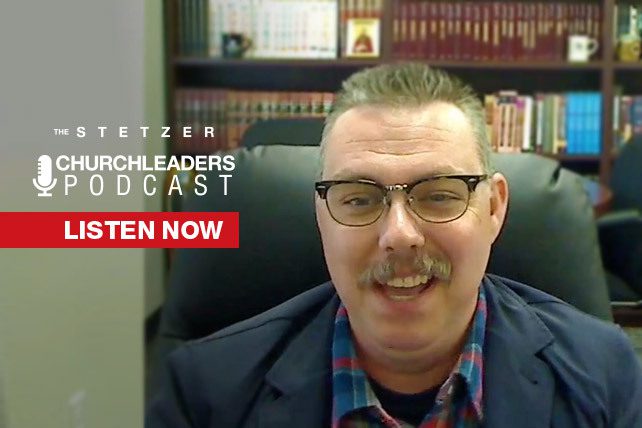





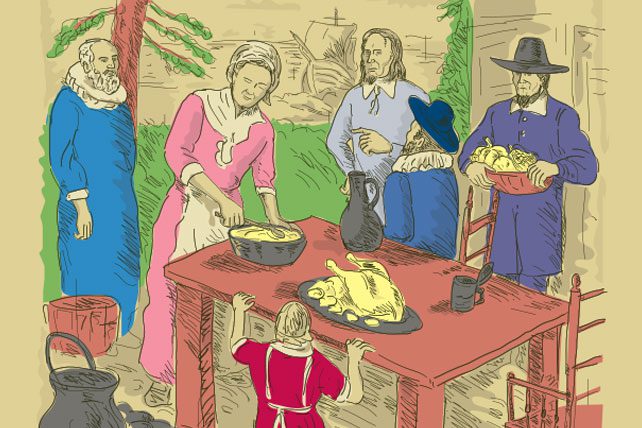


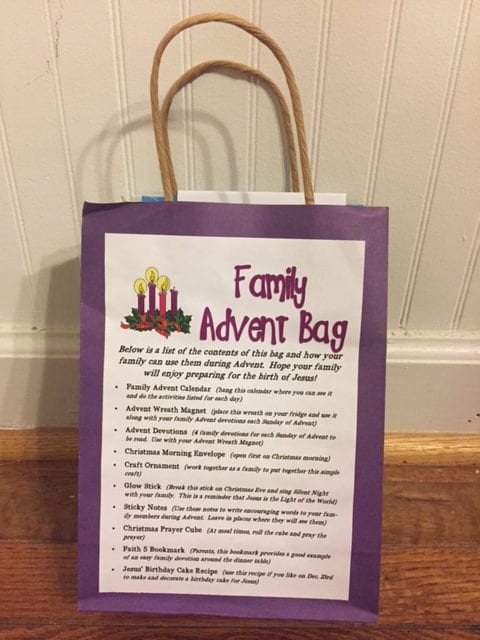

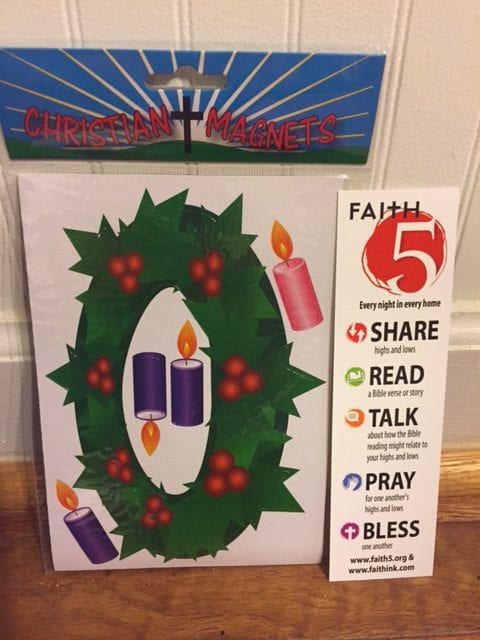



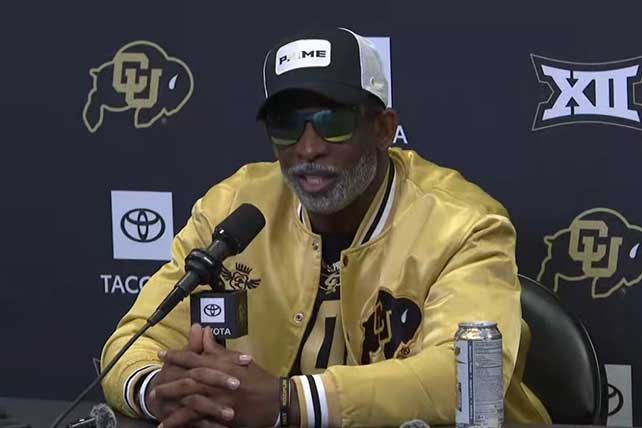

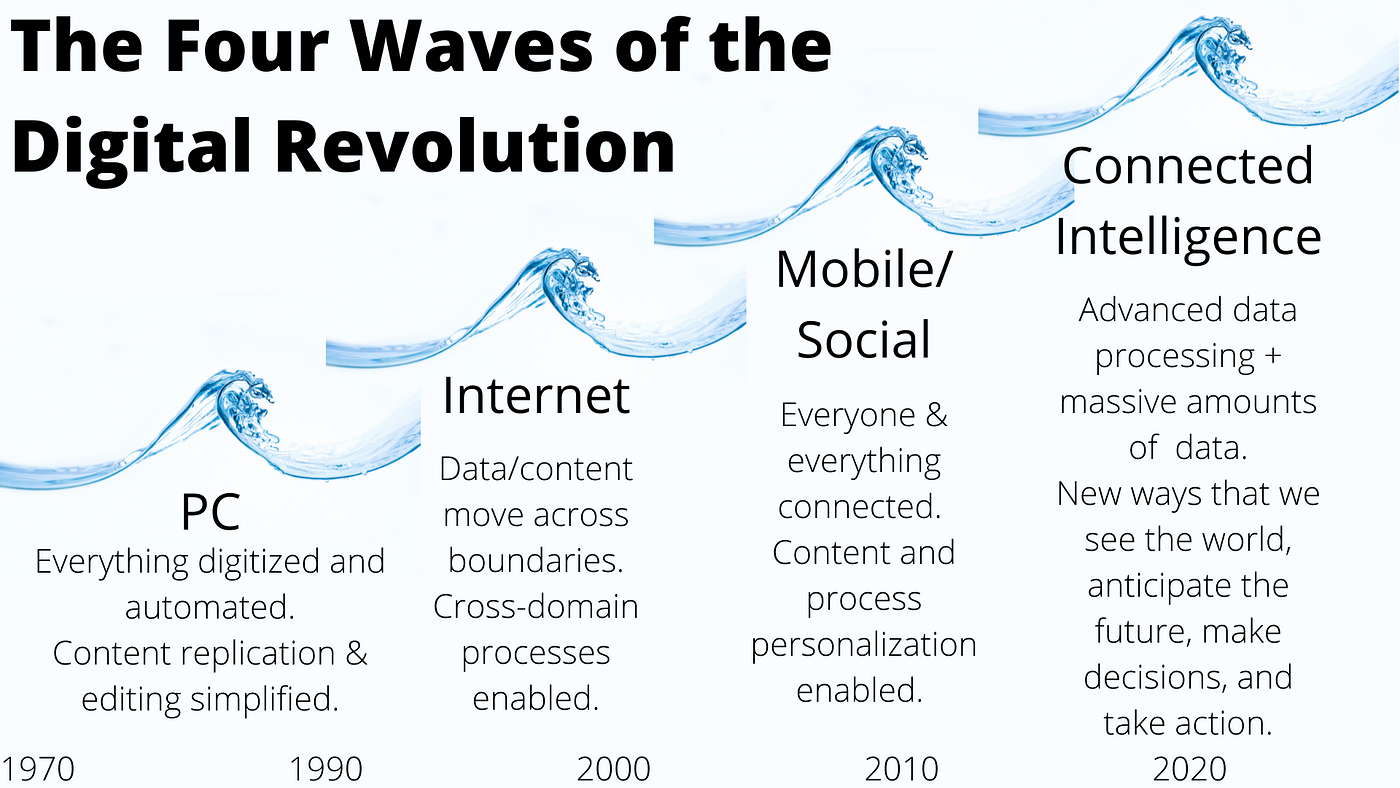



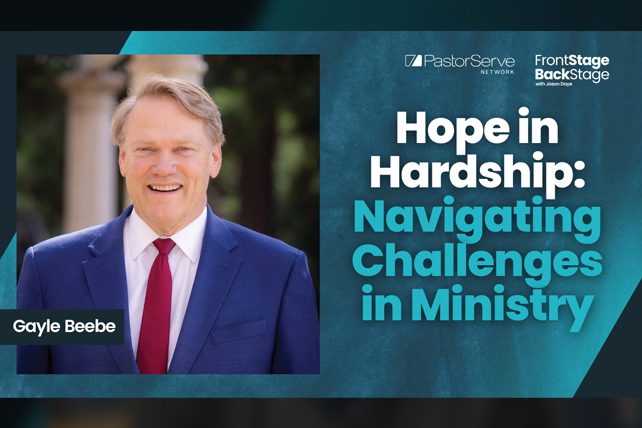
 How can setbacks, disasters, and hardships actually help us flourish in both life and leadership? In this week’s conversation on FrontStage BackStage, host Jason Daye is joined by Gayle Beebe. Gayle is the president of Westmont College in Santa Barbara, California. He’s had opportunities to serve and contribute to the global church in a number of ways. He’s written several books, including his latest, titled “The Crucibles That Shape Us.” Together, Gayle and Jason explore how God helps us navigate those defining challenges in our leadership. Gayle also shares some specific ways that these hardships provide passageways to experiencing God at a deeper level and serving his kingdom.
How can setbacks, disasters, and hardships actually help us flourish in both life and leadership? In this week’s conversation on FrontStage BackStage, host Jason Daye is joined by Gayle Beebe. Gayle is the president of Westmont College in Santa Barbara, California. He’s had opportunities to serve and contribute to the global church in a number of ways. He’s written several books, including his latest, titled “The Crucibles That Shape Us.” Together, Gayle and Jason explore how God helps us navigate those defining challenges in our leadership. Gayle also shares some specific ways that these hardships provide passageways to experiencing God at a deeper level and serving his kingdom.


